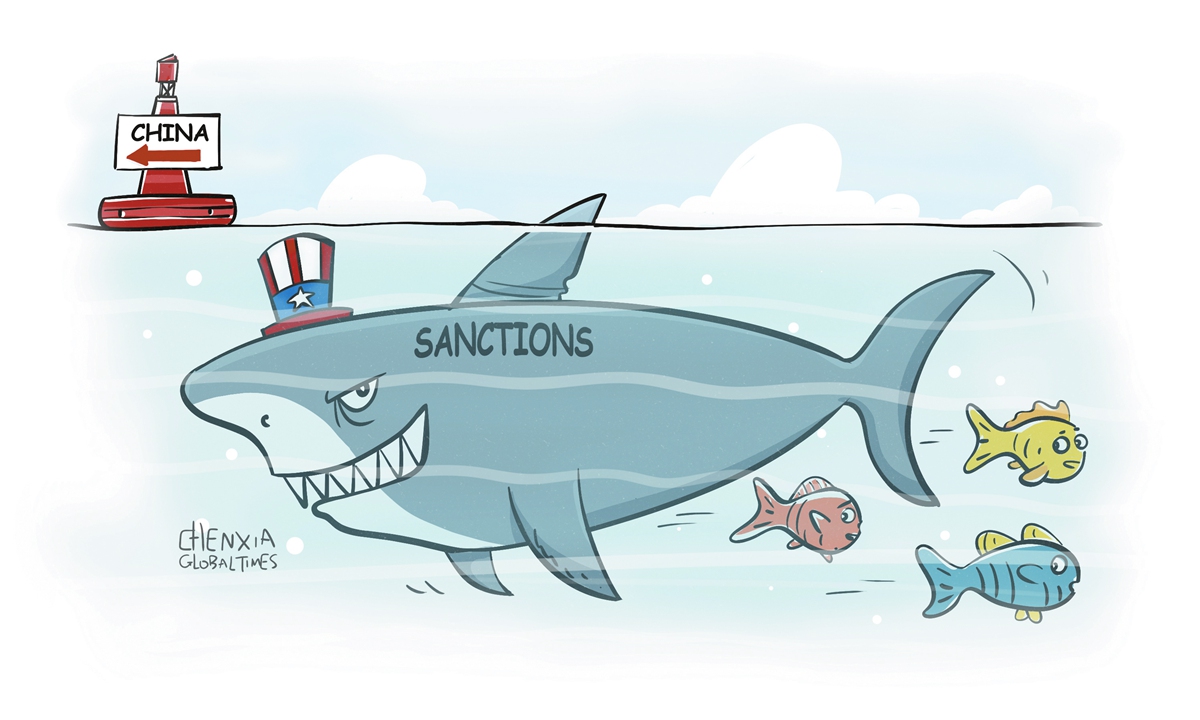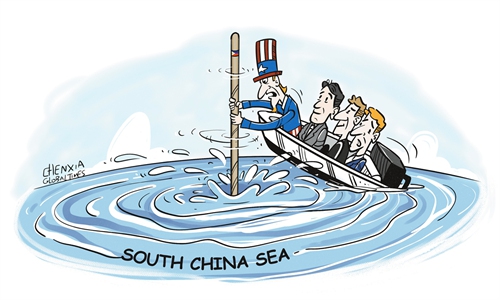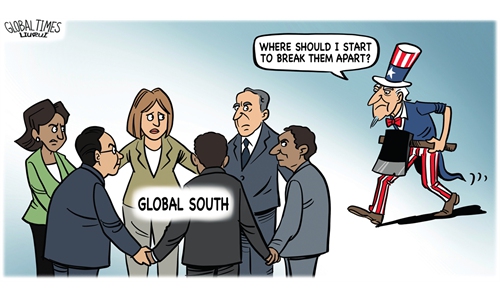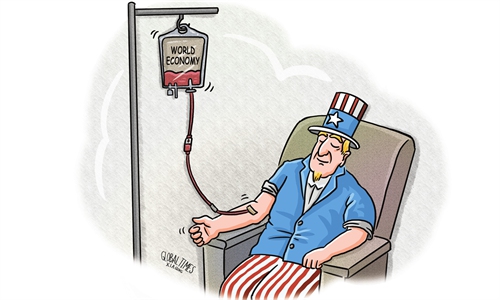
Illustration: Chen Xia/GT
To curb China's high-tech advancements, the US has repeatedly pressured its allies including the Netherlands, Japan and South Korea to further tighten restrictions on China's access to semiconductor technology. However, discontent is growing within these countries regarding Washington's increasing demands.
On Wednesday, the chief executive of Dutch chip equipment giant ASML admitted that the US-led campaign to restrict the company's exports to customers in China in the name of national security has become more "economically motivated" over time. He acknowledged that proving these restrictions are about national security is getting harder and harder and expects push-back against US-led restrictions to grow.
This is not the first time ASML has voiced concerns about US demands.
Christophe Fouquet, CEO of ASML, and his predecessor Peter Wennink, also voiced opposition to US' restrictions on ASML's exports of chip-making equipment to China. Similarly, Japanese and South Korean manufacturers have been at odds with their governments which have long felt pressure from US to cut closer cooperation with China. These companies fear that continuing to follow US restrictions will severely damage normal trade relations, ultimately harming their own interests.
The growing rational voices within the US' allied countries are primarily driven by concerns for their national economic interests. It also highlights the selfish nature of the US, which disregards the dissatisfaction of its allies.
Lü Xiang, a research fellow at the Chinese Academy of Social Sciences, told the Global Times that US allies have been forced to implement export restrictions due to the influence of US hegemony, but these measures have already caused significant economic harm to those nations, proving that the continued pressure from the US is unsustainable.
In fact, the US' coercion of other countries to suppress Chinese companies and limit high-tech exports to China is a form of economic coercion, entirely unrelated to "national security." Washington's allies should recognize that by acting as a "frontline" in the US' anti-China agenda, their own national interests are being hijacked by the US.
Countries like Japan, South Korea, and the Netherlands have deep economic ties with China, which is viewed as a crucial, and in some cases, an irreplaceable overseas market. However, the US has been leveraging these countries' security dependencies to coerce them into adopting its restrictive policies, which are disrupting well-established global supply chains. Ultimately, these actions could harm not only US allies, but also the US itself, according to Lü.
Moreover, despite the US repeatedly emphasizing the importance of expanding its alliances, the country has failed to deliver tangible benefits to its so-called allies. For the US, allies are merely expected to serve its own interests, and its restrictive measures have already caused losses for them.
Take South Korea as an example: in 2023, South Korea recorded a trade deficit of $18 billion with China, marking its first shortfall with the country in 31 years. According to South Korean media, the primary factor behind this shift is the decline in exports of products, such as semiconductors, due to export restrictions imposed at US' request.
The US has repeatedly pressured its allies to restrict exports to China, but has never shown any willingness or capability to offer compensation. Lü said neither the US' claim to strengthen the transatlantic partnership, nor the so-called Indo-Pacific Economic Framework with its allies includes any commitment from the US to grant its allies greater access to its market. This means that the US' allies will have to bear the economic consequences for US interests.
Ironically, although the US has been trying hard to restrict China's high-tech development even at the expense of its allies' interests and the global supply chain, it not only hasn't achieved its desired outcome, but only to find itself surrounded by discontented allies. By selfishly fostering division and confrontation to contain China, the US is now shooting itself in the foot.



